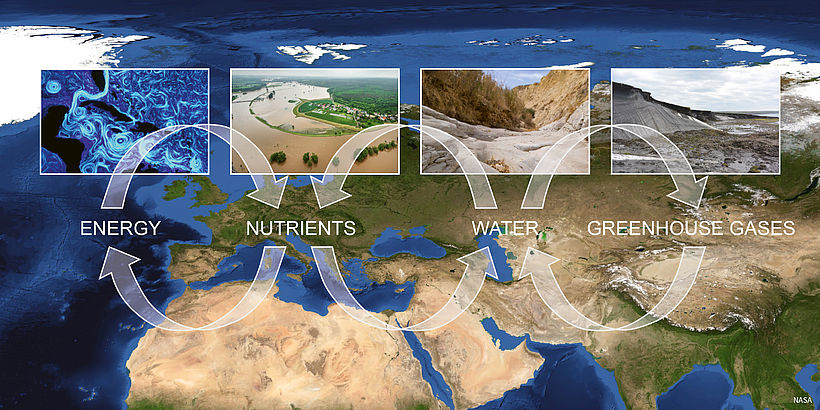
Events and Trends
MOSES is a new observing system of the Helmholtz Research Field "Earth and Environment" that investigates the evolution and impacts of highly dynamic, often extreme events using a systemic monitoring approach. By quantifying energy, water, nutrient, and greenhouse gas fluxes during short-term events such as weather extremes, abrupt permafrost thaw, or rapidly changing ocean currents, the system provides data to study potential long-term environmental impacts. Such event-oriented, yet cross-compartment datasets are necessary to better understand the impacts of climate change and develop adaptation strategies.
+++ News +++ News +++ News +++ News +++
Effects of marine heat waves and cold spells on a polar shallow water ecosystem
A new publication by Fischer et al. (2025) based on joint work of MOSES researchers from marine and terrestrial centers has delivered new insights how short-term temperature anomalies - marine heat waves and cold spells - profoundly affect polar shallow water ecosystems and how they can have a stronger and more immediate impact on marine ecosystems than long-term trends. Traditional sampling approaches often miss these rapid changes. By using continuous, high-resolution monitoring and AI-supported data analysis, the researchers captured ecosystem responses in real time. These short-term events affect the entire food web, from microorganisms to fish, and emphasize the need for next-generation marine observation technologies to fully understand ecosystem dynamics in a changing climate. The results show that not only the abundance but also the composition of species shifts in response to rapid environmental changes. This work highlights the importance of high-resolution monitoring to understand how climate extremes shape marine ecosystems in real time.
More information about this publication is available here.

